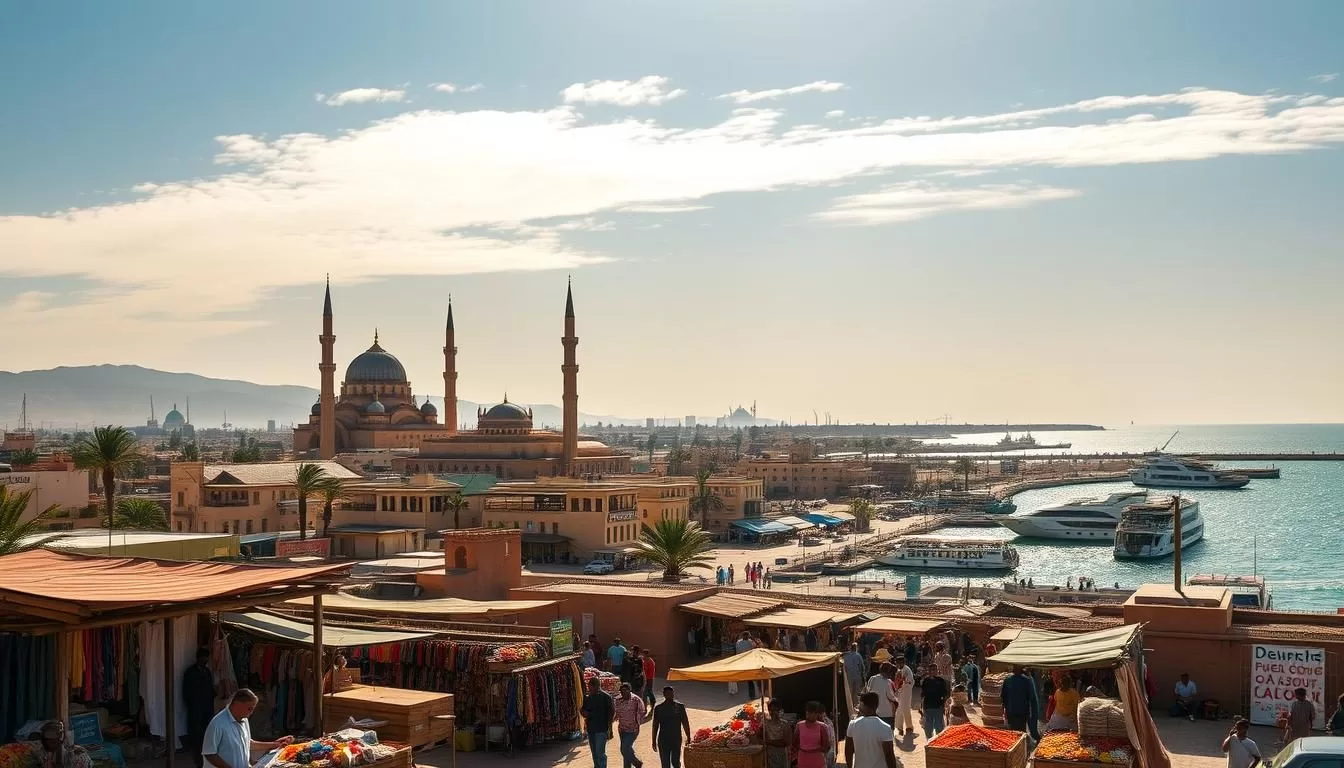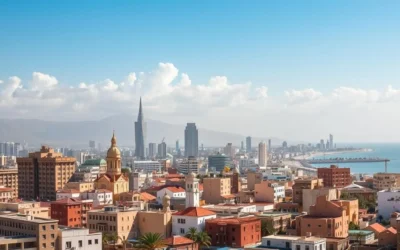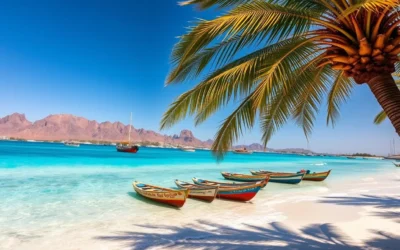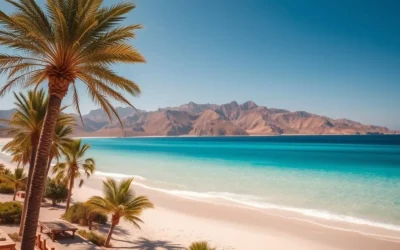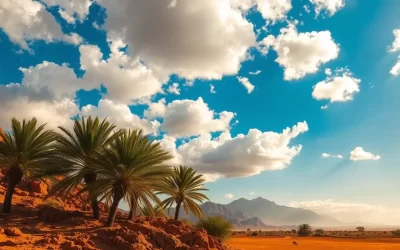✓ Accommodations✓ Flights✓ Rental Cars
Imagine a place where the beauty of Africa meets the charm of the Middle East. Djibouti, a small country in the Horn of Africa, is a hidden treasure waiting to be explored. With its unique blend of cultures, landscapes, and unforgettable experiences, Djibouti is becoming an increasingly popular destination for adventurous travelers.
You can float in the salty waters of Lake Assal or swim with whale sharks in the Bay of Ghoubet, making for an unforgettable experience. The beauty of this country lies in its diverse landscapes and rich cultural heritage, shaped by African, Arab, and European influences. As you explore Djibouti, you’ll discover stunning natural sights, ancient history, and a lively food scene that will leave you wanting more.
Discovering the Hidden Gem of the Horn of Africa
Tucked away in the Horn of Africa, Djibouti is a hidden gem that promises an unforgettable adventure. This small yet vibrant country is a treasure trove of diverse landscapes and rich cultural heritage.
You’ll be amazed by the mix of Djibouti culture and landscapes that will leave you in awe. From the vibrant French colonial architecture in Djibouti City to the ancient traditions of the Afar people, there’s much to explore in this unique place.
Why Djibouti Should Be on Your Travel Bucket List
Djibouti remains one of Africa’s best-kept secrets, offering a blend of natural wonders and cultural experiences. Its strategic location at the crossroads of Africa and the Middle East creates a fascinating mix of cultures, cuisines, and architectural styles, making it an exciting adventure destination.
Best Time to Visit Djibouti
The best time to visit Djibouti is from November to January when temperatures are more manageable. This period also coincides with the annual visit of whale sharks, making it an ideal time for spotting these gentle giants in the local waters.
| Best Time to Visit | Weather Conditions | Notable Events |
|---|---|---|
| November to January | Manageable temperatures | Whale sharks’ annual visit |
| May to September | Extremely hot | Avoid visiting Lake Abbe and Lake Assal |
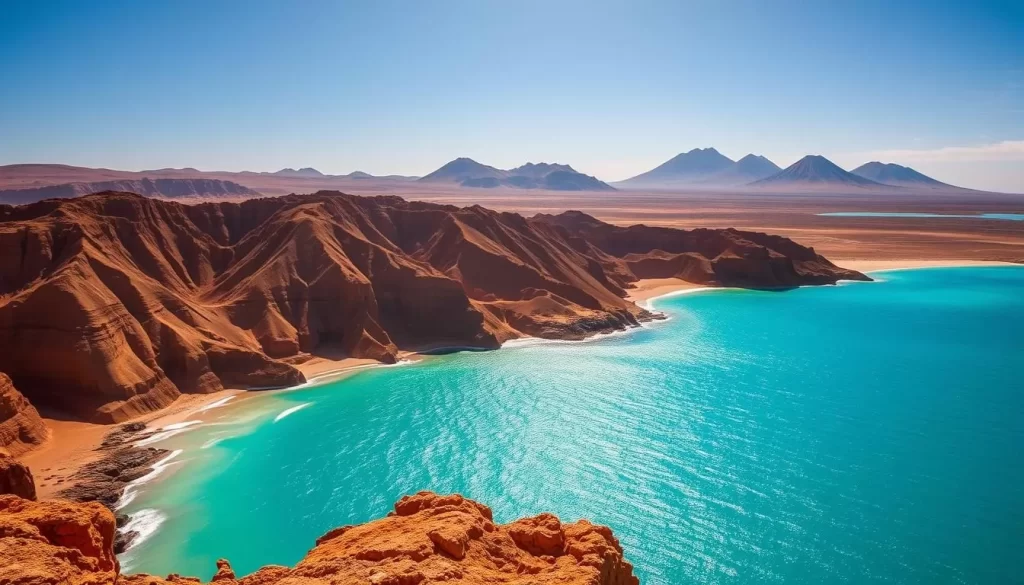
Understanding the best times to visit and being aware of the weather conditions can help you plan your trip to Djibouti effectively, ensuring a memorable experience in this diverse and captivating country.
Float in the Hypersaline Waters of Lake Assal
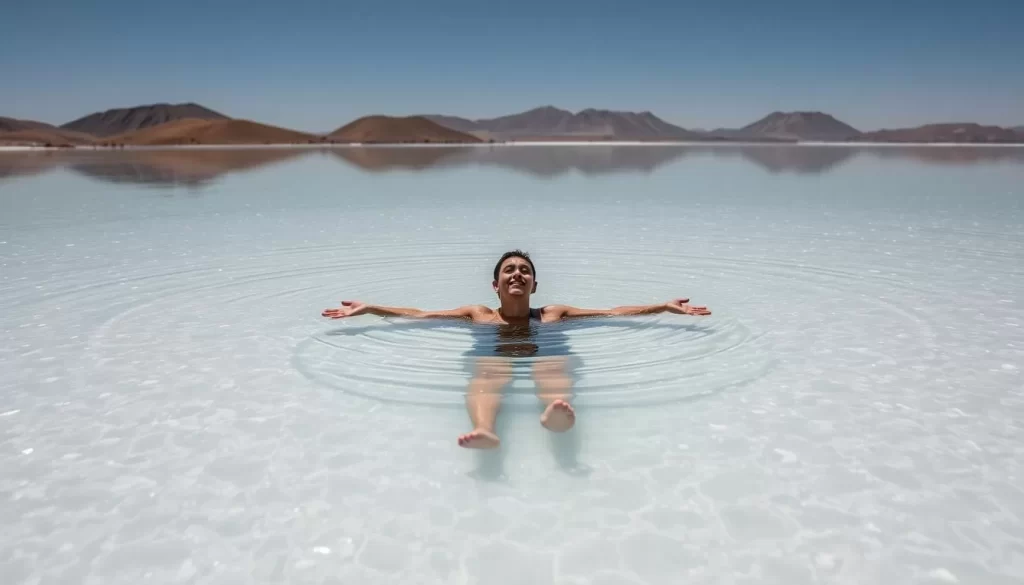
Experience the surreal beauty of Lake Assal, Africa’s lowest point, where hypersaline waters invite you to float effortlessly. Located just two hours from Djibouti City, Lake Assal is a must-see natural wonder that showcases the beauty of this unique spot on land.
Experiencing the Lowest Point of Africa
Lake Assal is not only a visually stunning place, but it’s also significant geologically. At 155 meters sea level, it’s the lowest point in Africa and the third lowest land depression on Earth. Visitors can explore this natural wonder and understand its importance.
A Surreal Landscape of Salt Crystals and Volcanic Craters
The landscape around Lake Assal is as breathtaking as it is unique, featuring dramatic salt crystals, volcanic craters, and black lava fields. The Lake Assal experience is truly otherworldly, with its hypersaline waters being 10 times saltier than the ocean, allowing visitors to float like a cork.
Swim with Majestic Whale Sharks in the Bay of Ghoubet

Get ready for an unforgettable adventure as you swim alongside whale sharks in Djibouti’s stunning Bay of Ghoubet. This experience is a must for any marine enthusiast or adventure seeker.
When and Where to Spot These Gentle Giants
The Bay of Ghoubet is renowned for its whale shark sightings, particularly from October to January. During this period, these magnificent creatures gather in the area, offering a unique opportunity to observe them up close.
Tips for an Unforgettable Whale Shark Experience
To make the most of your encounter, consider the following tips:
- Choose a reputable tour operator like Dolphin Excursions, which offers guided tours to spot whale sharks.
- Bring appropriate snorkeling gear to get a closer look at these gentle giants.
- Maintain a respectful distance to avoid disturbing the sharks and ensure a safe experience for both you and the animals.
By following these guidelines, you’ll be well on your way to creating lifelong memories of your encounter with whale sharks in the Bay of Ghoubet.
Explore the Unique Architecture of Djibouti City
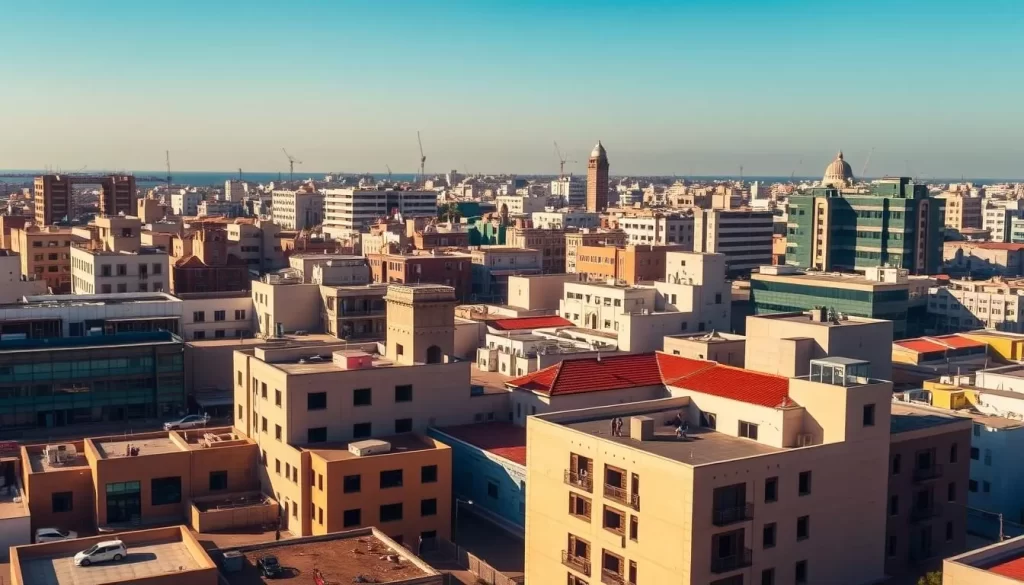
As you wander through Djibouti City, you’ll discover a unique urban landscape shaped by its cultural heritage. The city’s architecture is a reflection of its history, with influences from both European and African cultures.
A Blend of European and African Influences
The city’s architectural identity is characterized by a blend of French colonial and traditional African elements. You can see this blend in the European Quarter, where elegant colonial buildings stand as a testament to the city’s past. The French influence is evident in the French-style buildings and the availability of French cuisine, such as baguettes and croissants, throughout the city.
Must-Visit Historical Buildings and Landmarks
Some of the must-visit historical buildings and landmarks include the People’s Palace, which symbolizes Djibouti’s independence, and the Hamoudi Mosque, one of the country’s oldest religious structures. These landmarks not only showcase the city’s architectural beauty but also its rich history and cultural diversity.
- Wander through Djibouti City’s streets to discover the fascinating blend of French colonial architecture and traditional African design elements.
- Visit the European Quarter to see elegant colonial buildings that showcase the French influence.
- Explore historical landmarks like the People’s Palace, which symbolizes Djibouti’s independence.
- Discover the architectural beauty of Djibouti’s mosques, including the Hamoudi Mosque.
- Experience the vibrant contrast between European-inspired boulevards and traditional African markets.
Discover 7,000 Years of Rock Art at Abourma
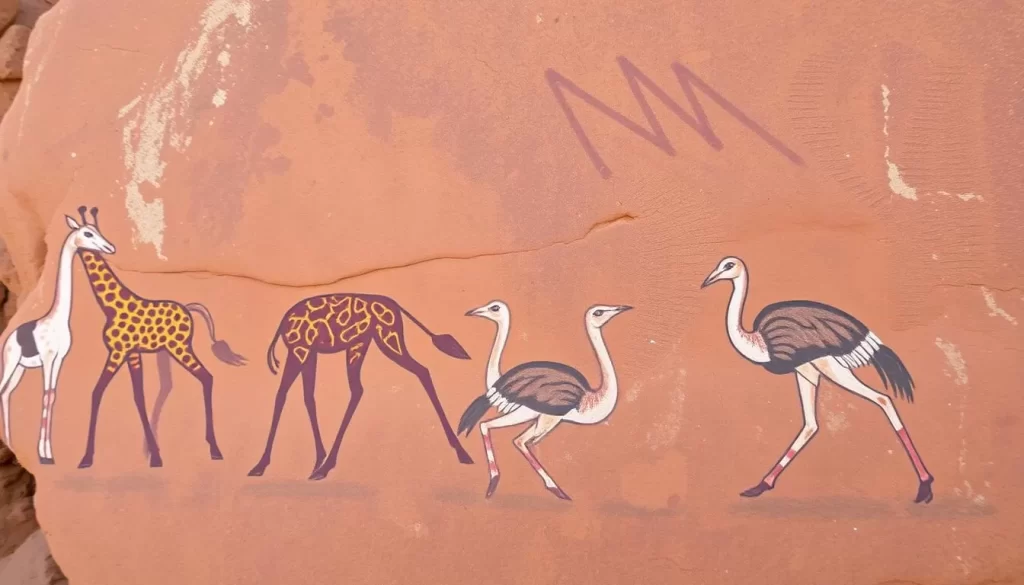
The Abourma Rock Art Site is a window into Djibouti’s past, showcasing vibrant paintings over 7,000 years old. Located 14 miles from Randa, this site is a must-visit for anyone interested in prehistoric art and history.
Unveiling Djibouti’s Prehistoric Heritage
Djibouti’s history is not just limited to its colonial past; it boasts a rich prehistoric heritage. The Abourma Rock Art Site is a testament to this, featuring stunning paintings of wildlife such as giraffes, antelopes, and ostriches. These artworks provide a unique glimpse into the lives of ancient peoples who inhabited this region.
To visit this remarkable site, you’ll need a four-wheel-drive vehicle and an experienced guide to navigate the terrain. The journey is well worth it, as the Abourma Rock Art Site offers an unforgettable experience.
- Journey to the remarkable Abourma Rock Art Site, located 14 miles from Randa, where you’ll discover ancient paintings dating back over 7,000 years.
- Marvel at the vibrant depictions of wildlife including giraffes, antelopes, and ostriches that provide fascinating insights into prehistoric life in the Horn of Africa.
- Understand the historical significance of these ancient artworks, which represent some of the oldest human creative expressions in East Africa.
- Learn about the practical aspects of visiting this remote place, including the need for four-wheel-drive transportation and an experienced guide.
- Appreciate how these prehistoric artworks connect modern visitors to the ancient peoples who once inhabited this land, making for a profound trip back in time.
Visiting the Abourma Rock Art Site is an enriching experience that allows you to connect with Djibouti’s ancient past. It’s a unique opportunity to witness some of the oldest and most significant prehistoric rock art in the region.
Relax on the Pristine Shores of Les Sables Blanc
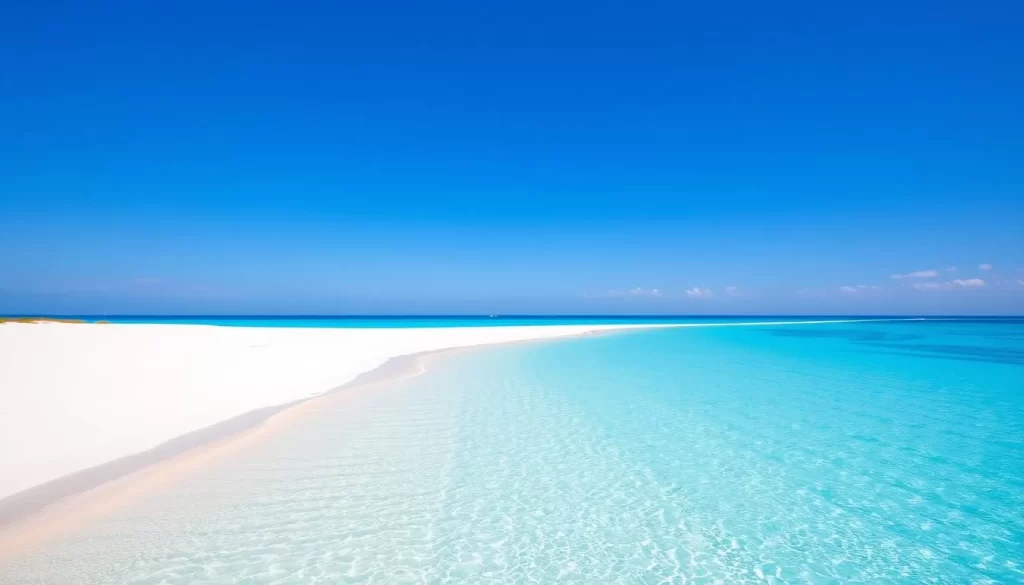
With its crystal-clear waters and powdery white sands, Les Sables Blanc is a beach lover’s paradise. Visiting Djibouti isn’t complete without seeing its stunning beaches along the Djibouti Red Sea coast. Les Sables Blanc, or the “White Sands,” is a paradise with white sand and turquoise water full of colorful marine life.
You can relax on the beach, enjoy fresh seafood, or explore the sea by snorkeling or kayaking. The shores of Les Sables Blanc are peaceful and beautiful, with Yemen’s shores in the distance. It’s perfect for a day of rest or adventure. The Djibouti beaches let you enjoy the country’s natural beauty when you visit.
A Haven for Beach Lovers and Adventure Seekers
Les Sables Blanc offers a unique experience that combines relaxation with adventure. The beach is characterized by its pristine white sand and crystal-clear turquoise waters, making it an ideal spot for swimming, snorkeling, and kayaking.
- Escape to Les Sables Blanc (White Sands), one of Djibouti’s most beautiful coastal areas featuring pristine white sand beaches and crystal-clear turquoise water.
- Discover the rich marine ecosystem of the Red Sea coast, where colorful coral reefs and diverse fish species create an underwater paradise for snorkelers and swimmers.
- Enjoy panoramic views across the water to Yemen’s distant shores, adding an exotic dimension to your beach relaxation experience.
- Sample fresh seafood at beachside restaurants while taking in the peaceful atmosphere of this relatively undiscovered coastal gem.
- Learn about the various water activities available, from kayaking to swimming, that allow you to fully appreciate the natural beauty of Djibouti’s Red Sea coastline.
Savor the Flavors of Djibouti’s Diverse Cuisine

Djibouti’s culinary landscape is a vibrant tapestry woven from African, Arab, and French influences. The country’s unique food scene offers a delicious experience that reflects its rich cultural heritage.
A Fusion of Flavors
From spicy stews to French-inspired seafood delicacies, Djibouti’s cuisine is a treat for the taste buds. The national dish, Skudahkharis, is a flavorful lamb stew cooked with cardamom and spices, showcasing the country’s African and Arab roots.
- Discover the culinary delights of Djibouti, where African, Arab, and French influences create a unique and flavorful food scene.
- Sample Skudahkharis, the national dish featuring tender lamb stew seasoned with cardamom and other aromatic spices.
- Explore street food options like sambussas and sweet banana fritters for an authentic taste of local cuisine.
- Experience upscale dining at restaurants like La Mer Rouge, where French culinary techniques are applied to fresh local seafood.
- Try specialty dishes like mukbaza, a distinctive fish preparation featuring honey, banana, and dates.
Visit a local place like La Mer Rouge to indulge in the freshest seafood with a French twist, and don’t miss trying mukbaza for a unique taste of Djibouti’s culinary creativity.
Venture to the Otherworldly Landscape of Lake Abbe
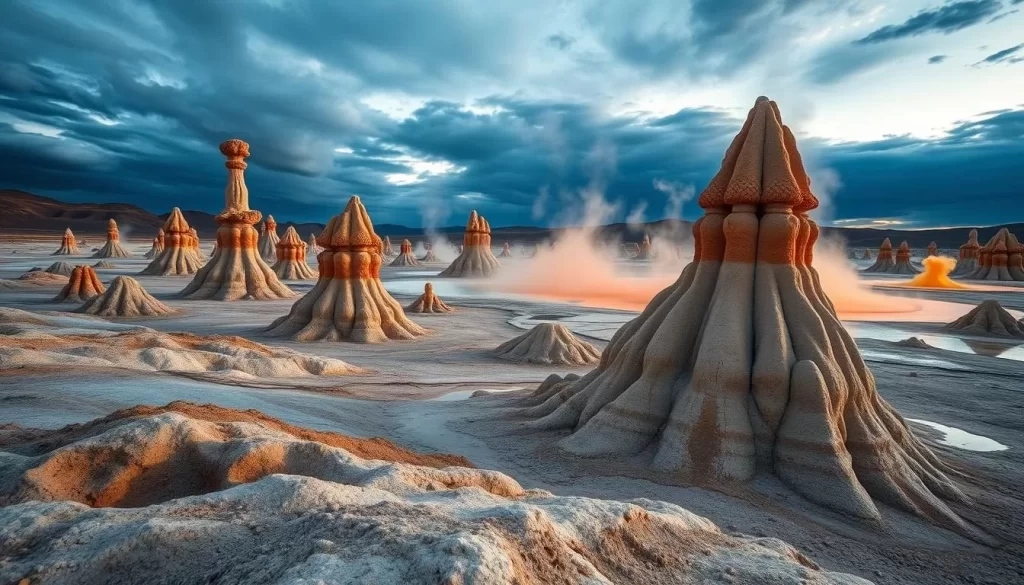
Djibouti’s Lake Abbe is an extraordinary place that will transport you to an alien world, complete with limestone chimneys and sulphur vents. Situated on the Djibouti-Ethiopia border, this series of interconnected lakes is a marvel of nature. The lake’s landscape is dotted with towering limestone formations, creating an otherworldly ambiance.
A Moonscape Like No Other
The desert surroundings and surreal geological formations make Lake Abbe a unique destination. Sulphur vents visible from miles away add to the moonlike atmosphere. You can explore this stunning site by 4×4, making for an unforgettable trip.
Some highlights of visiting Lake Abbe include marveling at the bizarre geological formations, learning about its claim to fame as a filming location for “Planet of the Apes,” and understanding the ecological significance of this salt lake system, which serves as an important flamingo breeding ground.
For comparison, while Lake Assal is known as the lowest point in Africa, Lake Abbe offers a distinct and equally fascinating experience, showcasing the diversity of Djibouti’s natural wonders.
Explore the Lush Oasis of Day Forest National Park
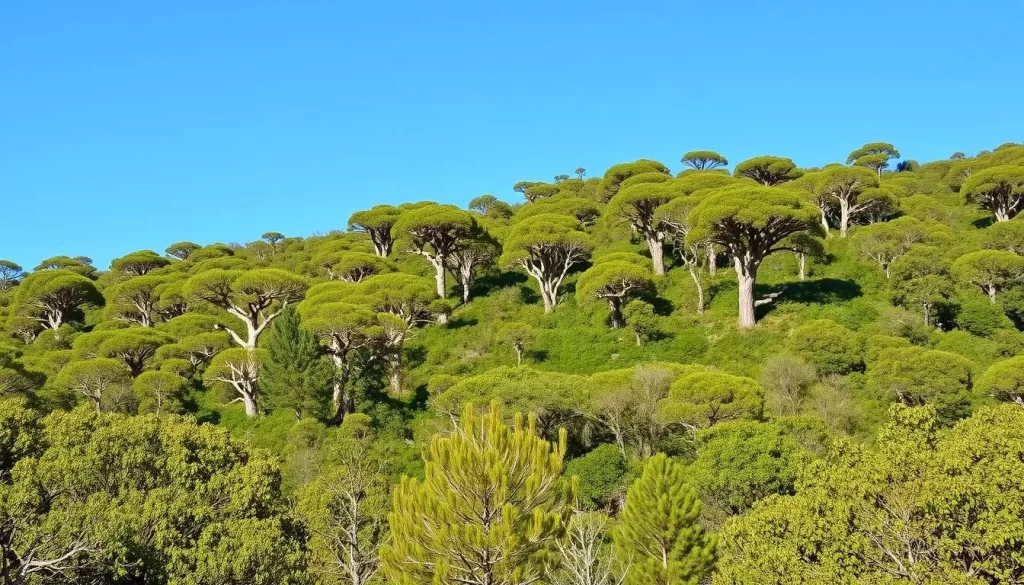
As you venture into Djibouti’s arid landscape, you’ll discover a surprising green oasis that stands out – the Day Forest National Park. Located approximately 60 km north of Djibouti’s capital, this park is one of only two protected forested areas in the country and boasts the largest forest, highlighted by a 900-ha expanse of East African Junipers.
The Day Forest National Park is a haven for nature enthusiasts, with its majestic trees reaching nearly 1000 meters in height. This sanctuary is home to exclusive bird species like the Toha and Djibouti sunbirds, which are rarely found elsewhere.
Birdwatching and Wildlife in Djibouti’s Green Haven
The Day Forest National Park offers a unique opportunity for birdwatching and observing wildlife in their natural habitat. Visitors can enjoy guided birding safaris to spot rare and endemic bird species.
Conservation efforts are underway to preserve the park’s fragile ecosystem despite environmental challenges. By visiting Day Forest National Park, you support these initiatives and help protect this invaluable national park for future generations.
Experience the Cultural Richness of Djibouti City, Djibouti: Best Things to Do – Top Picks
Immerse yourself in the cultural richness of Djibouti City, where tradition meets modernity. As you explore this vibrant city, you’ll encounter a unique blend of African and European influences that reflect its rich history.
Visit the Central Market and People’s Palace
The Central Market in Djibouti City is a bustling hub where local vendors sell everything from fresh produce to textiles, offering a glimpse into everyday life. You’ll find the market filled with friendly locals curious about visitors, making it a great place to interact with the community. In contrast, the People’s Palace is a significant cultural landmark that symbolizes Djibouti’s independence and houses important historical artifacts and exhibitions about the country’s journey to becoming the nation it is today.
- Explore the vibrant atmosphere of the Central Market.
- Visit the People’s Palace to understand Djibouti’s history.
Admire the Architectural Beauty of Djibouti’s Mosques
Djibouti City is home to some of the most beautiful mosques in the region, showcasing stunning architecture that reflects the country’s strong Islamic heritage. The Hamoudi Mosque, built on a triangular island, is one of the country’s oldest and most revered mosques, while the Al Molk Mosque boasts an impressive 1,000-seat capacity.
| Mosque | Notable Feature | Capacity |
|---|---|---|
| Hamoudi Mosque | Triangular island location | N/A |
| Al Molk Mosque | Large capacity | 1,000 seats |
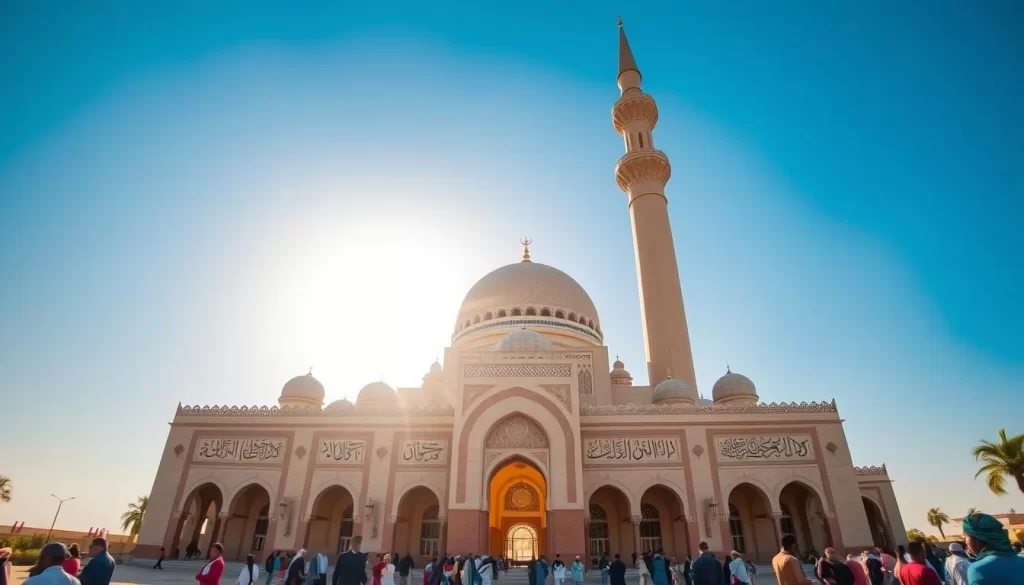
As you experience the cultural richness of Djibouti City, remember to respect local customs and dress modestly, especially when visiting religious sites. This will not only help you blend in but also enrich your interactions with the friendly locals.
Enjoy Water Activities at Doralé and Khor Ambado Beaches
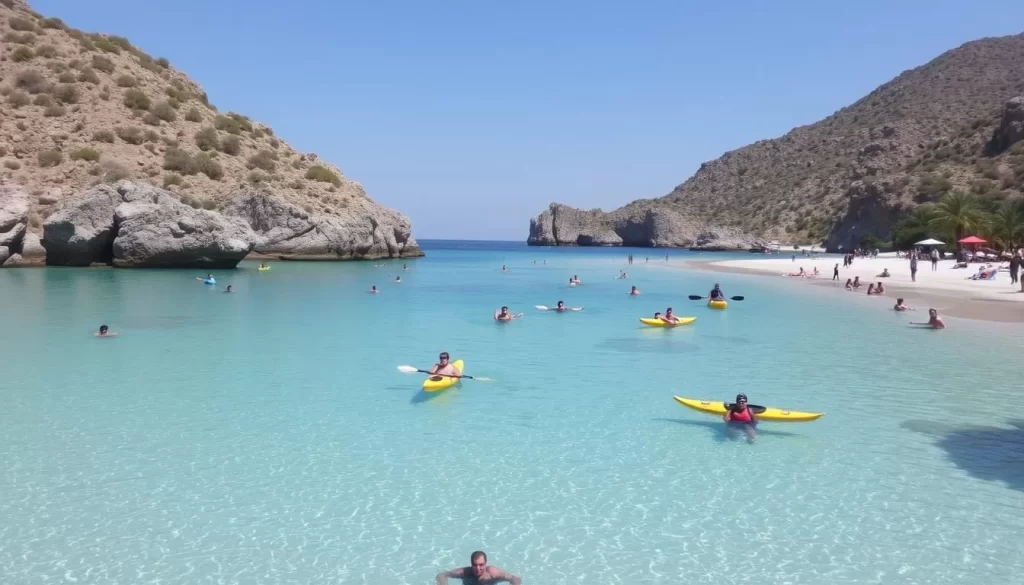
You can unwind on the pristine shores of Doralé and Khor Ambado, just 15 kilometers from Djibouti City. These beaches are popular with both locals and international visitors, offering a variety of water activities and sightseeing tours.
Snorkeling, Diving, and Relaxation Along Djibouti’s Coastline
The beaches of Doralé and Khor Ambado offer excellent swimming and sunset views, along with a range of water sports. Khor Ambado’s serene shores are ideal for family outings, while Arta Beach is a haven for snorkeling and scuba diving enthusiasts, with whale sharks and vibrant coral reefs.
Some of the top activities to enjoy at these beaches include:
– Escape the city heat at Doralé and Khor Ambado beaches, located just 15 kilometers from Djibouti City.
– Enjoy a variety of water activities including swimming, snorkeling, and diving in the clear waters.
– Experience the relaxed atmosphere of these coastal retreats, where you can watch stunning sunsets or simply unwind on the shore.
– Choose between the more developed facilities at Doralé or the quieter, more natural setting of Khor Ambado.
– Consider joining organized diving and snorkeling excursions that provide equipment and expert guidance to the best underwater spots.
Conclusion
Nestled in the Horn of Africa, Djibouti City is a treasure trove of cultural richness, natural beauty, and adventure. As you’ve discovered through this article, Djibouti is a unique destination that offers travelers an unforgettable experience. From the hypersaline waters of Lake Assal to swimming with whale sharks in the Bay of Ghoubet, you’ll find a diverse array of activities to enjoy.
When you visit Djibouti, you’ll be struck by the country’s natural wonders, cultural heritage, and the blend of African, Arab, and European influences. Make sure to dive into the local culture, try the diverse food, and explore the many adventure spots on offer. With its rich history, modernity, and stunning nature, Djibouti City is a place that will leave a lasting impression on you, making your trip a memorable one.
As you plan your visit to Djibouti, you’ll find that this small country packs an outsized punch in terms of things to do and experiences. With its vibrant culture, breathtaking landscapes, and warm hospitality, Djibouti is an ideal destination for travelers seeking authentic experiences. So, get ready to embark on an adventure of a lifetime in this incredible country.
The above is subject to change.
Check back often to TRAVEL.COM for the latest travel tips and deals.
